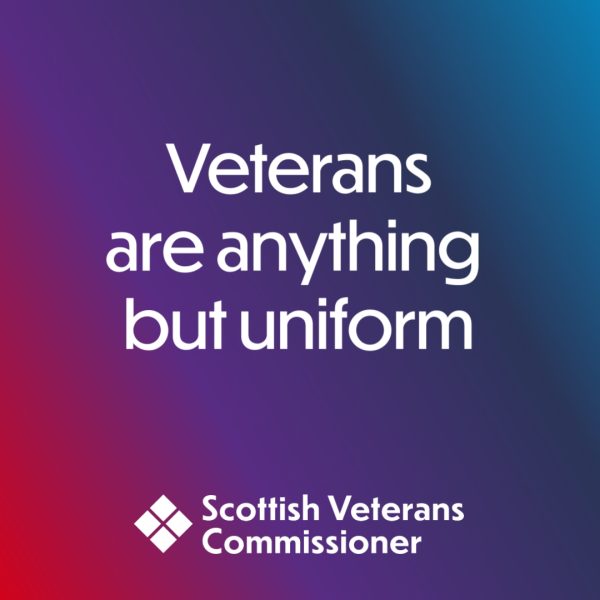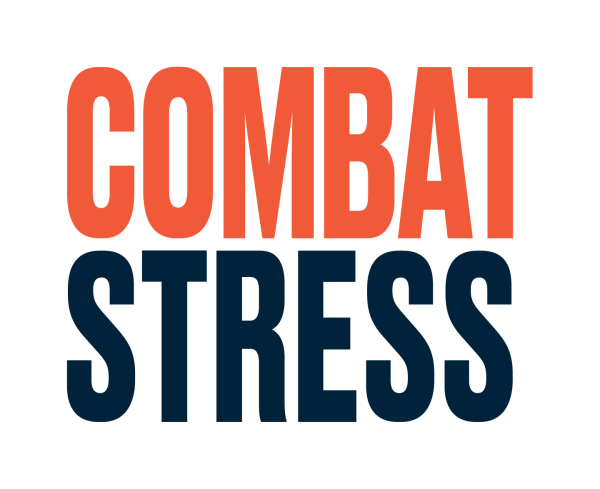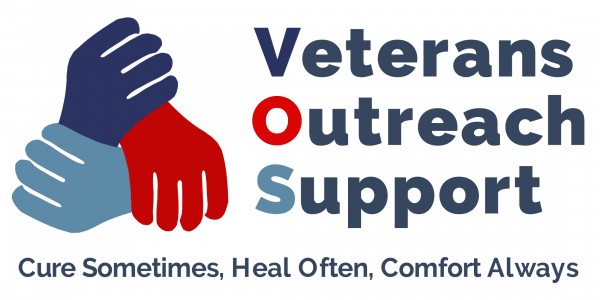The Scottish Veterans Commissioner (SVC) has called for more support for the ‘invisible’ members of the veteran community in her new report Community and Relationships – Anything But Uniform.
The report puts the spotlight on those whose voices are less often heard in the military including women veterans, the LGBT+ community, families, the bereaved, and non-UK veterans.
Following extensive engagement involving hundreds of veterans and their families, along with service providers from the statutory and charity sectors, the Commissioner found that while things are slowly improving, work has still to be done to ensure their experiences, needs and circumstances are not overlooked.
Scottish Veterans Commissioner Susie Hamilton, a former Royal Navy Officer, said:
“Just like the whole of society, our veterans reflect different genders, cultures, religions, backgrounds, sexual orientations and life experiences.
“That means that their needs – and the support and services that they and their families might call upon – will be individual to them and their circumstances. To deliver the best possible support, service providers must recognise and understand that diversity and respond sensitively and appropriately. All veterans and their family members should feel understood and equally valued by society and empowered to reach their full potential.”
She added:
“While there has undoubtedly been progress in statutory provision for veterans, some parts of the community have not been so well supported. This includes those LGBT+ veterans and women veterans who have had very negative experiences while serving. These experiences may have continued to affect them in their civilian lives and in their approach to accessing support when needed.”
Having listened carefully to veterans, family members and those who support them, the Commissioner will be making the following recommendations to the Scottish Government:
- The identity and contribution of under-represented groups within the veteran community are recognised. Diversity is recognised in language, imagery, policy and practice and barriers to access are eliminated. Gaps in provision for the specific needs of under-represented groups within the veteran community are addressed.
- A better understanding by service providers of the specific needs of women veterans is required, particularly in the areas of mental health and sexual trauma, to support them more effectively.
- Improved and expanded data capture, analysis and transfer supports and enhances policy development, quality of support and service delivery for the veteran community.
- Spouses, partners, children and the bereaved are explicitly included in policy and practice relating to the veteran community.
- Mechanisms are established to raise awareness, promote good practice, identify and resolve challenges, and provide assurance and consistency of delivery of veterans’ services by public bodies in Scotland (in line with the principles of removing disadvantage due to Service and applying special consideration if appropriate).
- Inconsistency of financial support for the most vulnerable veterans in Scotland should be eradicated by Scottish public bodies.
Lieutenant Commander Hamilton added:
“Working on this report very much highlighted that all veterans are unique individuals – we may have worn a uniform but we are anything but uniform. Action has to be taken now to ensure that where veterans and their families need support, it is accessible, effective and appropriate to their needs, for as long as those needs are there.”


















